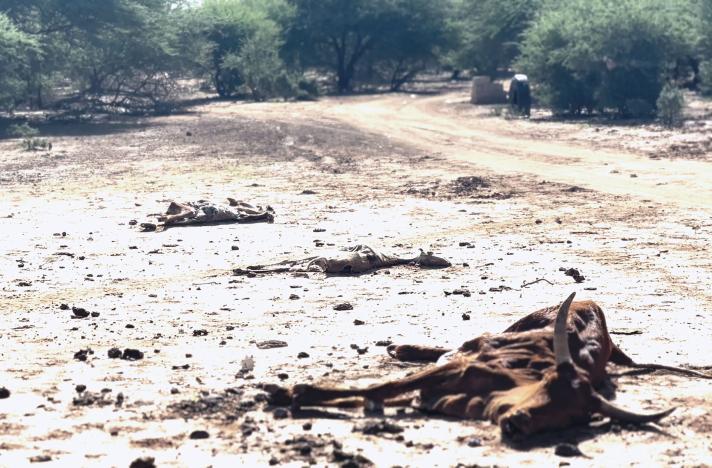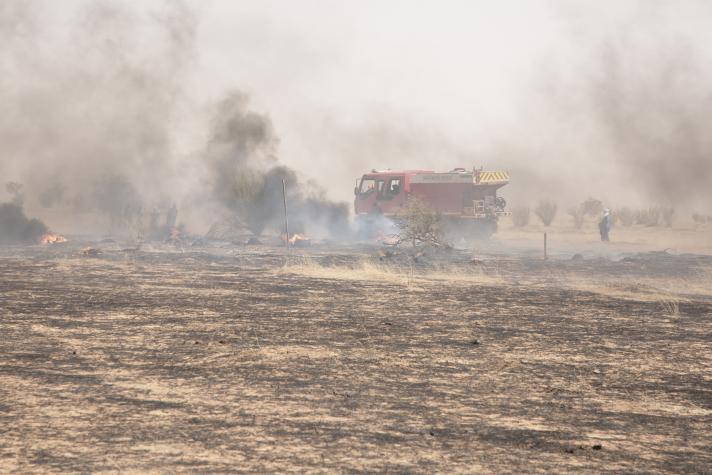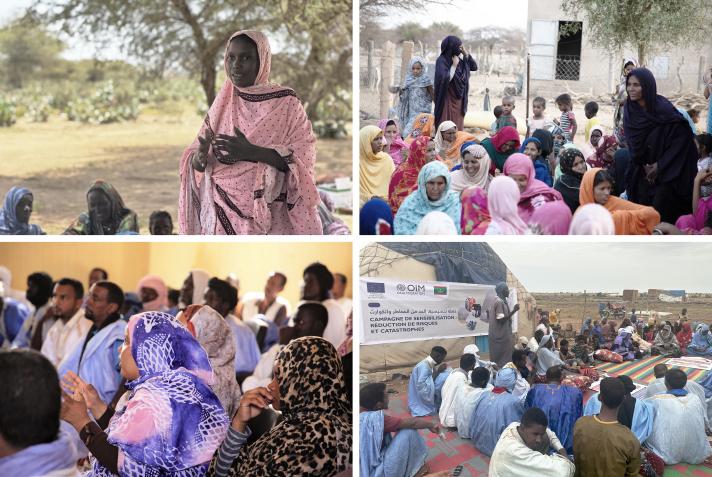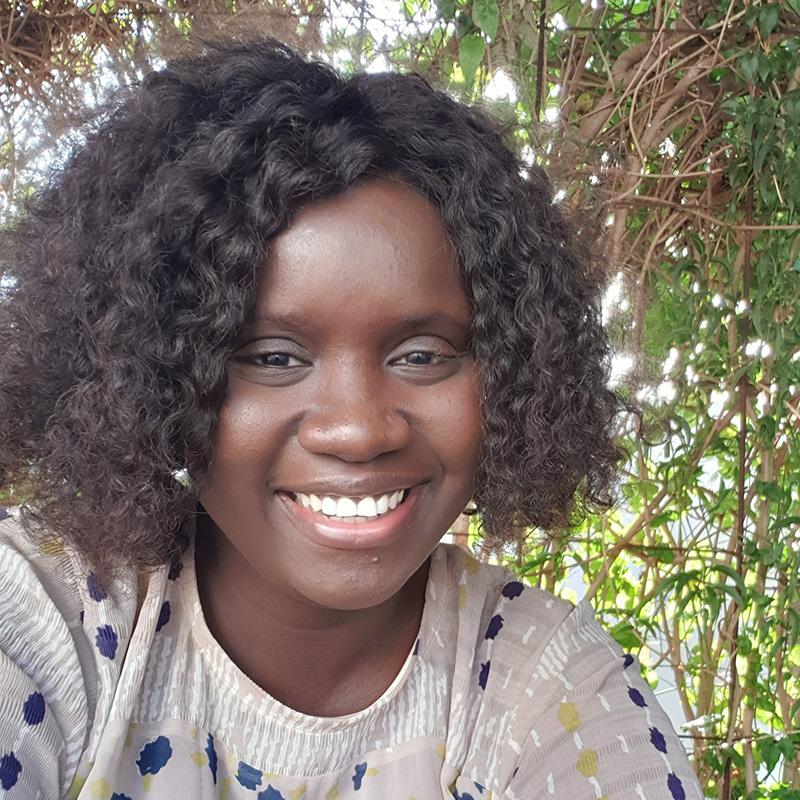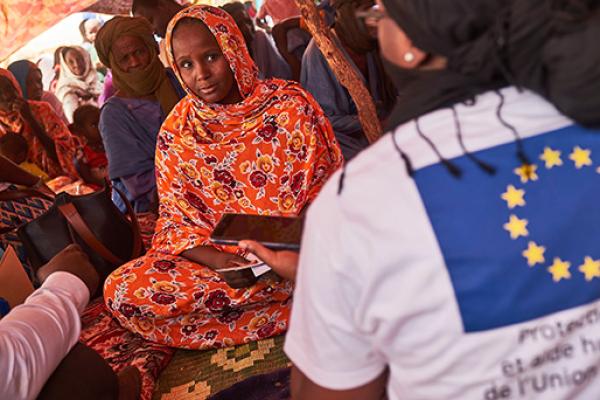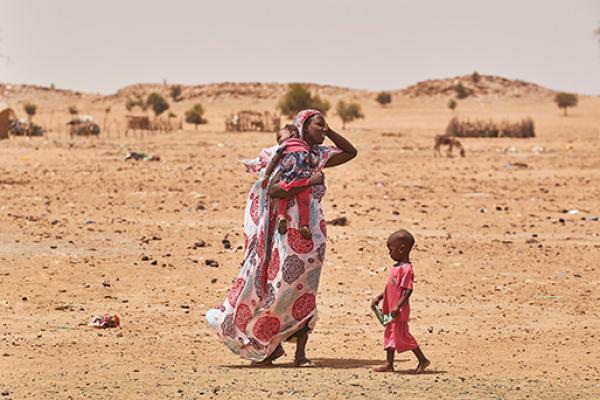Situated between the Maghreb and the Sahel, Mauritania faces significant challenges due to climate change, with more than 200,000 hectares of pastureland lost annually to natural disasters.
In 2023, more than 844,000 people required humanitarian aid due to displacement, severe weather, and food crises. Since 2007, the European Union has been offering humanitarian assistance to vulnerable people in Mauritania, catering to the escalating needs prompted by climate change and the arrival of refugees from Mali escaping conflict in their country.
Mauritania is often affected by a variety of hardships, ranging from droughts and floods to epidemics and bushfires, in addition to population displacements caused by violence and pastoral conflicts along its border with Mali.
Desertification impacts 85% of the territory, especially in the South-East. The Hodh el Chargui region, which borders Mali and hosts the renowned Mbera refugee camp, experiences 90% of the country’s bush fires. Fanned by drought, the fires are threatening the very survival of local communities.
Bush fires are the primary cause of natural pasture degradation and destruction in the country. This environmental catastrophe intensifies the effects of desertification and threatens the harmonious existence of pastoralists and local farmers. The movement of herds onto farmlands heightens the risk of local disputes and violent confrontations, weakening the resilience of the communities involved.
"We only have 1 pond to water our cattle and those of the nomadic herders, so can you imagine what this can lead to?" worries Fatma, who lives in Lemghayes, a village straddling the border between Mauritania and Mali. This area, often the scene of agro-pastoral conflicts, serves as a crucial junction for nomadic pastoralists who arrive to sell and pasture their livestock.
Despite the many challenges affecting her village, Fatma remains determined. Together with other women from her community, they are committed to local disaster management, supported by the European Union and the International Organization for Migration.
This humanitarian partnership has bolstered the capabilities of local stakeholders in disaster risk reduction. Through the formation of village committees, autonomous community entities, these women have become now central to community-led strategies against disasters like bush fires.
The programme helps communities along transhumance routes to collaborate with local entities to prevent natural hazards in key pastoral areas. This has made communities such as Fatma's more resilient, equipping them to deal more effectively with various risks.
"Some of the village committees we supported have spontaneously put their knowledge of preparedness to good use. When an influx of refugees arrived, they prevented them from settling in flood-prone areas and organised shared access to water for the animals, thus reducing vulnerabilities and tensions," explains Marianne Tinlot, of EU Humanitarian Aid.
The country is home to the largest camp for Malian refugees, Mbera, which has been a refuge for those fleeing violence and instability in Mali since 2012. The number of refugees continues to increase, with little chance of returning home. The Mbera camp hosts over 100,000 Malian refugees out of the 200,000 that are present on Mauritanian territory today.
The EU humanitarian funding's impact extends beyond awareness; it has facilitated the creation of practical measures for disaster response. This includes providing committees with the necessary equipment and protocols to anticipate, manage, and resolve crises, particularly those arising from conflicts over scarce natural resources which are vital for livestock.
"Thanks to these tools, village committees are now better prepared to deal with disasters and conflicts that may arise," says Fatma, who is proud to be one of the 1,545 beneficiaries of the disaster management awareness campaign in her locality.
Since 2007, the European Union has allocated €154 million in humanitarian assistance to Mauritania, aiding those in dire need. This support has been instrumental in fighting food scarcity, and curbing child malnutrition and assist the refuges from Mali.

